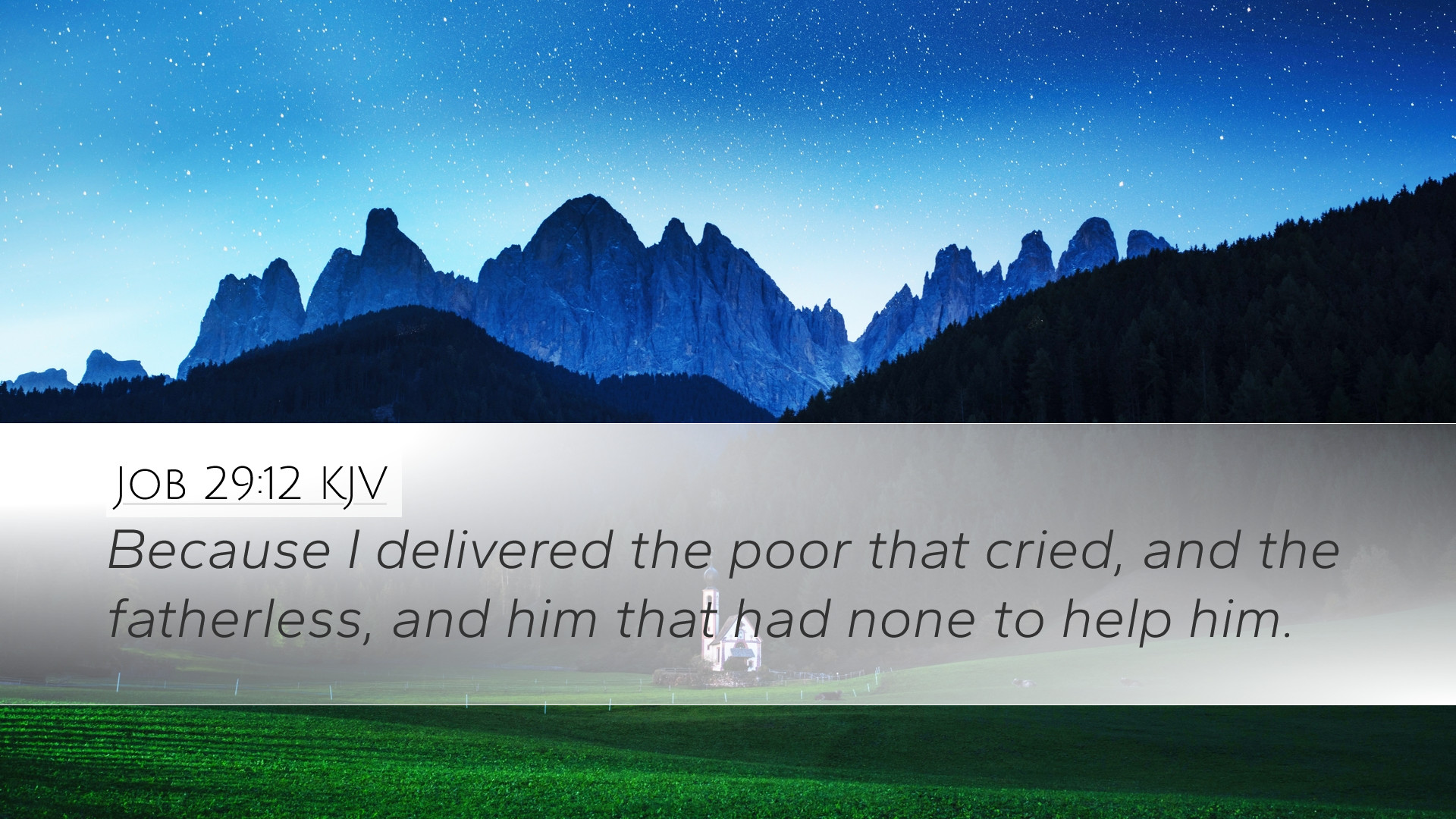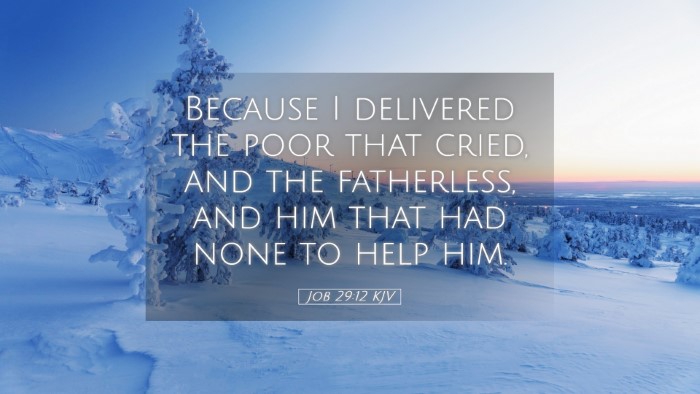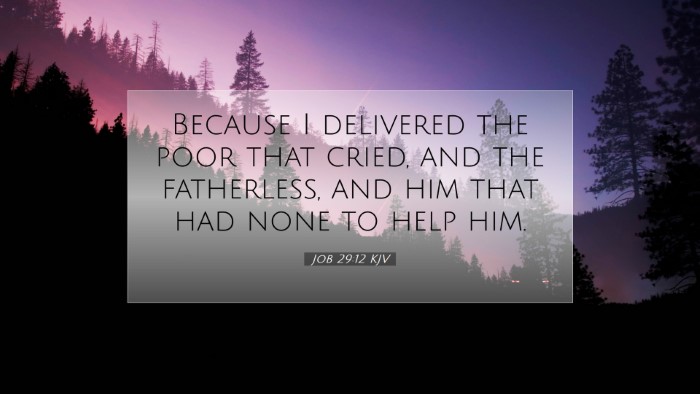Old Testament
Genesis Exodus Leviticus Numbers Deuteronomy Joshua Judges Ruth 1 Samuel 2 Samuel 1 Kings 2 Kings 1 Chronicles 2 Chronicles Ezra Nehemiah Esther Job Psalms Proverbs Ecclesiastes Song of Solomon Isaiah Jeremiah Lamentations Ezekiel Daniel Hosea Joel Amos Obadiah Jonah Micah Nahum Habakkuk Zephaniah Haggai Zechariah MalachiJob 29:12
Job 29:12 KJV
Because I delivered the poor that cried, and the fatherless, and him that had none to help him.
Job 29:12 Bible Commentary
Commentary on Job 29:12
Verse: "Because I delivered the poor that cried, and the fatherless, and him that had none to help him."
Context of Job 29:12
In this passage, Job reflects on his past prosperity and the righteousness that characterized his former life. After enduring intense suffering and loss, Job reminisces about his former status as a respected leader and protector of the helpless. This verse particularly emphasizes Job's commitment to social justice, highlighting his role in aiding the marginalized.
Thematic Insights
Job 29:12 encapsulates themes of mercy, justice, and community responsibility. Job's declaration underscores his integrity and the moral duties that he acted upon in his community. The following insights are drawn from noted biblical commentators:
-
Matthew Henry:
Henry comments on Job's advocacy for the poor and needy, noting the importance of speaking up for those unable to help themselves. He suggests that true righteousness involves engaging in social justice and embodying compassion. Job's lamentation illustrates that genuine faith is not just personal but actively seeks to uplift the downtrodden.
-
Albert Barnes:
Barnes notes that Job’s past actions depict him not just as a man of wealth, but as one who used his resources to support the vulnerable. He highlights the significance of the character of God as revealed in Job's actions—God cares for the helpless and expects his followers to do the same. The verse prompts readers to reflect on their own responsibilities towards the marginalized.
-
Adam Clarke:
Clarke underscores the broader implications of Job's statement regarding human compassion. He interprets Job's dialogue as an assertion of his righteousness during times of prosperity and an indictment of the current situation in which he finds himself. Clarke encourages readers to aspire to similar acts of benevolence and service, suggesting that true fulfillment in life comes from helping others.
Theological Implications
This verse opens a discussion on the nature of righteousness in the sight of God. It highlights the essential quality of faith expressed through action. For pastors, students, and theologians, Job's declaration serves as a poignant reminder that faith without works is incomplete. The verse compels a reflection on how believers can engage in acts of kindness as a reflection of their relationship with God.
Implications for Pastoral Ministry
For pastors, this passage invites a deeper understanding of community engagement. It emphasizes the necessity of pastoral care that extends beyond spiritual nourishment to include addressing the physical and emotional needs of the congregation. It breeds an aspiration for leaders to champion justice and mercy in a practical sense.
Practical Applications for Students and Scholars
Students and scholars might ponder the ways in which Job's advocacy resonates with current societal issues. Job's example serves as a framework for researching social justice within the communities they inhabit. It allows for a critical examination of how biblical principles can inform contemporary debates surrounding poverty, welfare, and community service.
Conclusion
In conclusion, Job 29:12 embodies a call to action rooted in the biblical tradition of caring for the vulnerable. The insights from public domain commentaries aid in appreciating the profound commitment to justice that characterizes true righteousness. For believers, this verse inspires ongoing reflection on their personal and communal responsibilities towards the needy.


